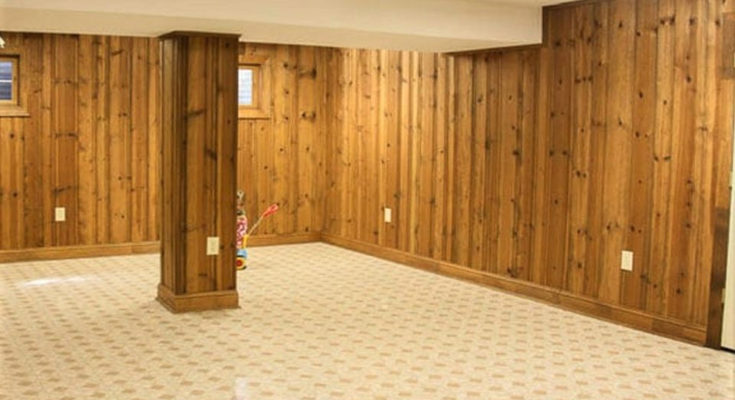As their families grow, many homeowners find themselves needing extra space. While building an addition onto the home is an option, finishing the basement is often the easier and more cost effective choice. Finishing a basement can add much needed square footage to your home and give your family a new place to relax and entertain. Before beginning a basement remodeling or finishing project, consider these renovation basics in order to make sure that your project goes as smoothly as possible.
Moisture:
Before beginning a renovation of your basement, be sure that excessive moisture does not render your basement useless. Excessive moisture, defined as the pooling of water on the floor, may make your basement an unsuitable candidate for renovation. While minor leaks can be repaired, significant moisture problems cannot be overcome and a renovation should not be attempted.
Usage:
When remodeling a basement keep in mind that the space is usually dark and somewhat insular. With that in mind, be sure that your design is appropriate for the space. Certain projects such as a home theater or wine room lend themselves to a basement environment while other ideas may not be as suitable.
Walls:
While building walls in a basement can make it seem more inviting and pleasing to the eye, keep in mind that wood studs may fall victim to the moisture present in the basement. Steel studs are a great alternative and already come drilled with holes for electrical wiring.
Electrical:
Most building codes require that a basement renovation have a certain number of electrical outlets. Remember to include this requirement in your plans to avoid having to go back after the project is over and install them.
Egress:
An egress is defined as an exit point besides the doorway and is required by law for basements with a bedroom. The code is in place to protect the inhabitants of the home in case of a fire and as such should not be ignored if you are planning on a bedroom in your basement.
Lighting:
With their low ceilings, basements often create limited options for lighting. Canned lighting is a great choice for basements as it provides ample lighting and require minimal space for installation.
Renovating a basement is a great and often cost effective alternative to building an addition to a home if more square footage is needed. Hopefully, you will find these six basic considerations for planning a basement remodel valuable and educational. Remodeling can be an exciting undertaking that is made much easier and enjoyable by having a working knowledge of basement remodels that serves to guide your project.



